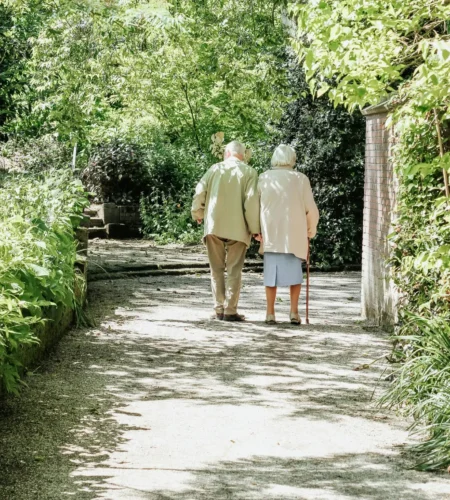Grief is a natural response to loss. For older adults, this can be particularly challenging as they may experience the loss of spouses, friends, or even their own health. The process of grief recovery often requires coping with a range of emotions, such as sadness, anger, and confusion.
It’s essential to recognize that recovery is not about forgetting those we have lost but rather about finding ways to move forward while cherishing those memories. Read on.
The Importance of Emotional Well-Being
Emotional well-being is crucial during the grief recovery process. Older adults might feel isolated as their social circles shrink due to the loss of loved ones. Maintaining relationships and engaging in social activities can help combat feelings of loneliness.
Staying socially active improves mental health and helps in processing grief. Engaging with family, friends, or community groups can provide the support needed for recovery.
Creating a Supportive Environment
Creating an environment that nurtures emotional well-being is key for older adults. Simple actions, such as keeping communication lines open, can have a significant impact on how they cope with their grief.
Families and caregivers play an important role in this process by being aware of the signs of grief and providing necessary support. Regular check-ins, encouraging discussions about feelings, and just being present can make a world of difference.
Recognizing Signs of Grief
It’s important to understand that everyone grieves differently. Some may show their sadness openly, while others might withdraw and avoid social interactions. Common signs include changes in appetite, sleep disturbances, and loss of interest in previously enjoyed activities.
Caregivers and family members should be alert to these signs and respond with empathy and understanding. When someone feels heard and supported, it aids in their grief recovery.
Encouraging Healthy Coping Mechanisms
Establishing healthy coping mechanisms is vital for older adults facing grief. Encourage them to express their feelings through various forms of expression, such as journaling, art, or music.
These activities not only serve as outlets for emotions but also help foster connections with their memories. Encourage them to engage in physical activities, like walking or gentle exercises, that promote mental well-being and relieve stress.
Joining support groups is another excellent option, where individuals can connect with others who understand what they are going through. Supporting grieving seniors with care can also come from community resources that offer programs specifically aimed at helping older adults navigate their grief.
Finding Purpose in New Beginnings
As older adults move through their grief recovery, it’s essential to look ahead and embrace new beginnings. Finding new hobbies, volunteering, or joining clubs can bring a sense of purpose and joy.
Establishing new routines helps in creating structure, which can be comforting during times of change. Sharing experiences with others can build strong bonds. These connections can help with emotional healing.
Implementing Routine and Structure
Implementing a daily routine can greatly benefit emotional well-being. Encouraging older adults to plan their days with meaningful activities can make a positive impact on their mindset.
A morning walk, an afternoon reading session, or evening chats with family all help. Having a schedule brings security and familiarity. This routine helps them process their emotions better.
Moving Forward Together From Grief Recovery
Grief recovery is a journey for older adults that necessitates understanding, compassion, and support. Remember that every small step counts. As families and friends, let’s commit to being there for our loved ones, ensuring they feel supported and connected as they move forward in life.
Visit our website and read more.
Also Read-Chiropractor Puns: Laugh Your Way to Better Health


Comments